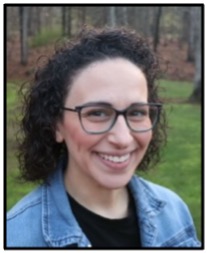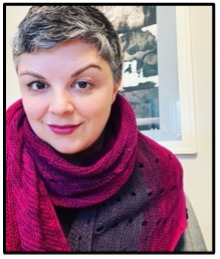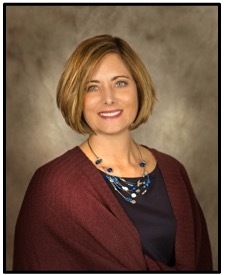Editor’s Note: Happy 10th Anniversary Michigan Arts Education Instruction and Assessment (MAEIA) project! This is part of a continuing series that celebrates the 10 year milestone. We will highlight a variety of individual voices telling their stories of MAEIA participation during the ten years and we will look ahead to the next exciting 10 years.
Building the MAEIA assessment catalog meant bringing together experienced educators in visual and performing arts to design and write the 360 performance events and tasks. These are some of their voices. Thanks for being a part of our celebration.
~ Joni Starr
___________________________________________________________________________________________________________
MAEIA is a success story about a cross-sector collaboration of partners who prioritized the use of one time appropriated funds and aligned those priorities in the development of resources, tools, and the means to use them.
Since 2012, more than 1,000 Michigan arts educators have contributed to the MAEIA project. The results are the MAEIA Blueprint, Research & Recommendations, Program Review Tool, Assessment Specifications, and Performance Assessments. They researched, wrote, reviewed, piloted, scored, identified exemplars, and presented to colleagues across the state and nation.
The MAEIA resources were made by arts educators for arts educators, and this started with the recruitment and convening of assessment writers.

“I got involved with the process because assessment is an important part of evaluating how students learn and how programs can develop the resources that leverage learning to achieve the greatest impact,” says Janine Campbell, visual arts teacher at Byron Center West Middle School.
 Heather Vaughan-Southard, MAEIA Professional Learning Director notes, “When I met Kathy Dewsbury-White she shared information about the assessment writing project with me. I applied to become an item writer for Dance because I was so impressed that there was an arts education project of this scale happening in Michigan. I wanted to be a part of it!”
Heather Vaughan-Southard, MAEIA Professional Learning Director notes, “When I met Kathy Dewsbury-White she shared information about the assessment writing project with me. I applied to become an item writer for Dance because I was so impressed that there was an arts education project of this scale happening in Michigan. I wanted to be a part of it!”
Kathy Dewsbury-White and her executive team brought together experts in the visual and performing arts to train in the writing of performance tasks and events that allow for authentic assessment for students in K-12. The days were long, arduous, and joyful. The many days of meeting and working together built a strong community of professionals that focused and delivered on the overall goal.
 Cecilia Gollan, visual art teacher at Milford High School remarks, “At the beginning I really was not sure what to expect from the process. After working on many parts of this project I came to expect excellence. As a visual arts teacher, we are often on our own islands not having much interaction with other teachers. Working on the different aspects of the MAEIA project gave me an opportunity to meet many other amazing teachers from around the state of Michigan. Everything that I worked on was a valuable learning experience that I was able to incorporate into my teaching practices.”
Cecilia Gollan, visual art teacher at Milford High School remarks, “At the beginning I really was not sure what to expect from the process. After working on many parts of this project I came to expect excellence. As a visual arts teacher, we are often on our own islands not having much interaction with other teachers. Working on the different aspects of the MAEIA project gave me an opportunity to meet many other amazing teachers from around the state of Michigan. Everything that I worked on was a valuable learning experience that I was able to incorporate into my teaching practices.”
“I expected that the process of the work would be interesting. That was true! I wasn’t sure what to expect in regard to how the resources would be used, by whom, and so on. I knew that I was excited to receive these resources as an arts educator and would use them to bolster my own assessment practice as well as a communication tool with students and my administrators. We came to expect a rigorous writing experience with excellent catered lunches. An unexpected outcome was the community of arts educators I entered and have maintained for 10 years, even outside of my current role with MAEIA,” says Heather.
 Janine explains, “I expected to be able to bring back resources to my classroom that helped push my students and myself to that next level of learning, as well as the tools to help me have meaningful conversations about assessment with others, both within the arts and from other disciplines and backgrounds.”
Janine explains, “I expected to be able to bring back resources to my classroom that helped push my students and myself to that next level of learning, as well as the tools to help me have meaningful conversations about assessment with others, both within the arts and from other disciplines and backgrounds.”
“I was privileged to be a part of the assessment writing team for the discipline of Theatre. At the time I was working with teacher education students at MSU and this was a great opportunity to learn more about high quality assessment in the arts. I was then able to pass along the knowledge and resource to future teachers,” notes Joni Starr.
The MAEIA performance assessments allow educators to choose what fits their planned curriculum and use them strategically throughout a semester, course, or year. The assessments can easily be adapted to meet student and classroom needs, including accommodations for special education students.
“The Theatre team was comprised of Theatre teachers from all backgrounds and experiences. When writing for multiple grade levels, or for special needs students, or with an eye to diversity and equity, we had the expertise around the table to meet these goals,” says Joni Starr.
Performance assessment asks students to apply their knowledge and skills to create a product, presentation, or demonstration focused on key aspects of standards. MAEIA assessments are aligned to standards that ask students to create, perform/present, and respond. In this way, assessment becomes part of the creative and learning process, rather than a separate experience.
MAEIA assessments were written to be used in a single classroom, or as common assessments in a team. For individual teachers, data and exemplars of student work can be powerful components in demonstrating educator effectiveness. When used in a team, assessment results can foster meaningful conversations about student needs and common planning for curriculum, instruction, and program improvement.
Cecelia says, “I wanted to help create materials and tools to help improve the arts in our state that would in turn help my district.”
“Being a part of MAEIA has totally shifted how I use standards-based assessments to evaluate student work, show growth, and give meaningful feedback within lessons and units of study in the Visual Arts,” explains Janine. “I am forever grateful for this community and the process we went through to help create pathways that highlight what effective programming looks like that supports and highlights the arts in our schools.”
To see how the MAEIA performance assessments can support your curriculum and teaching, explore the sample curriculum maps and other instructional resources on the MAEIA website.
Click here for a Printer friendly version of this article.
Leave a Reply
You must be logged in to post a comment. Don't have an account? Register Here.